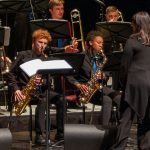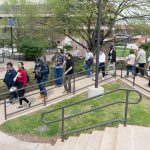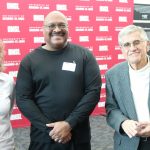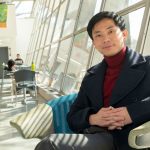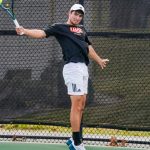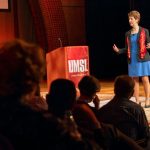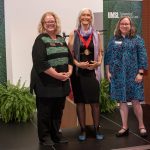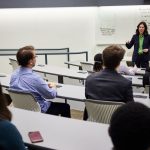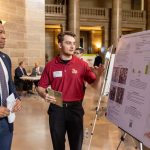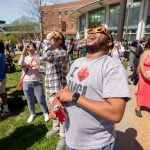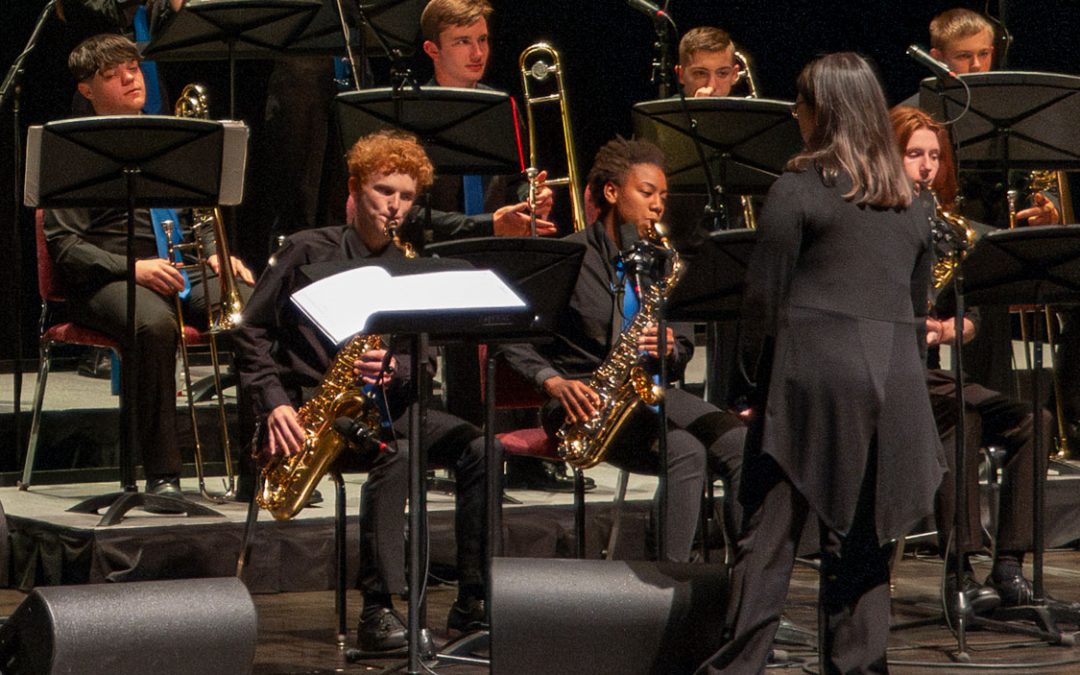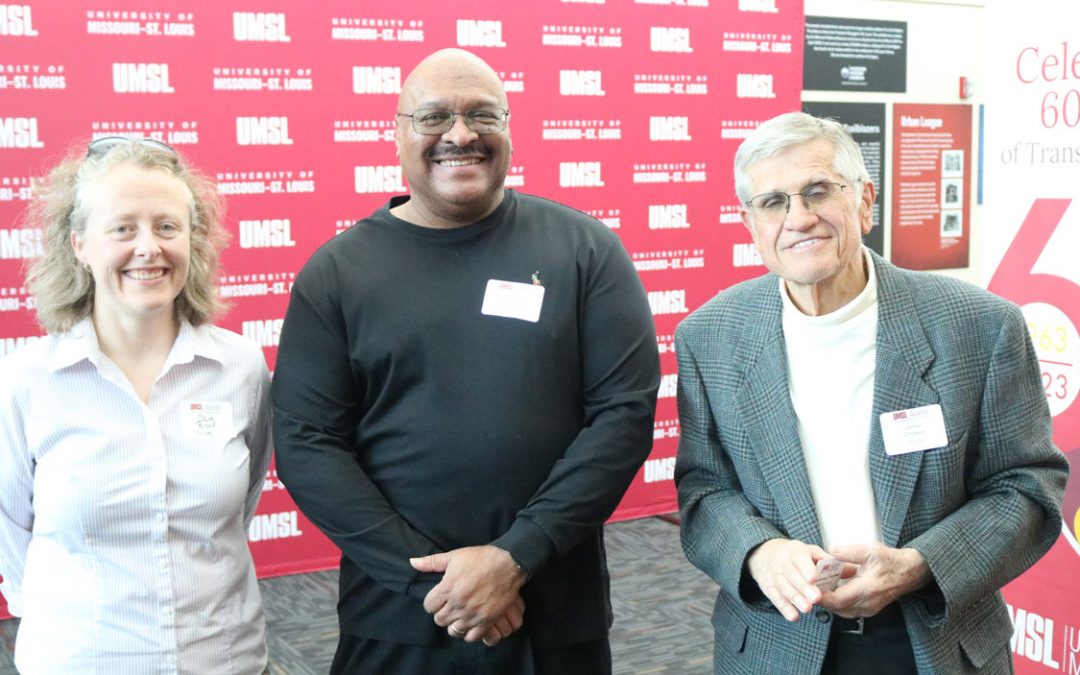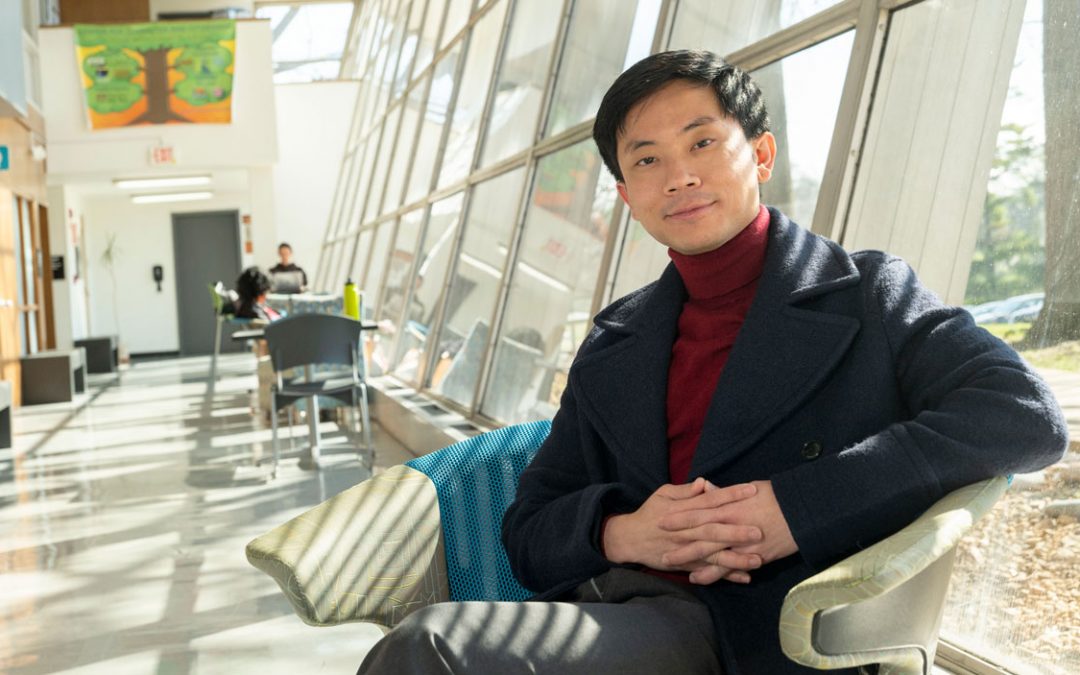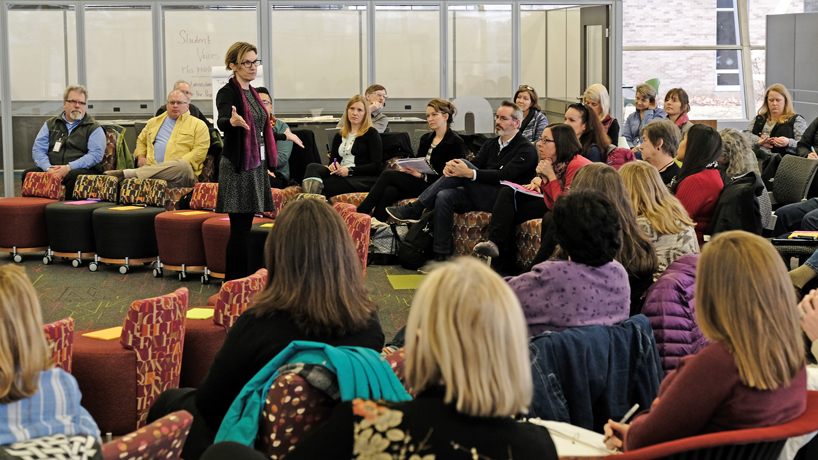
Laura Westhoff, chair of the department of history at UMSL and one of many invited collaborators for the week on Heritage Leadership, spoke to the students about “troubling what it means to be a historian,” and finding ways to use history and heritage to transform experience. (Photos by August Jennewein)
An education and training specialist with the U.S. Fish and Wildlife Service in West Virginia. A national park ranger from Minnesota. A former superintendent with the American Battle Monuments Commission in France. The deputy head of school at an international school in Thailand.
What do each of these individuals have in common? They are all pursuing doctoral degrees in education at the University of Missouri–St. Louis.
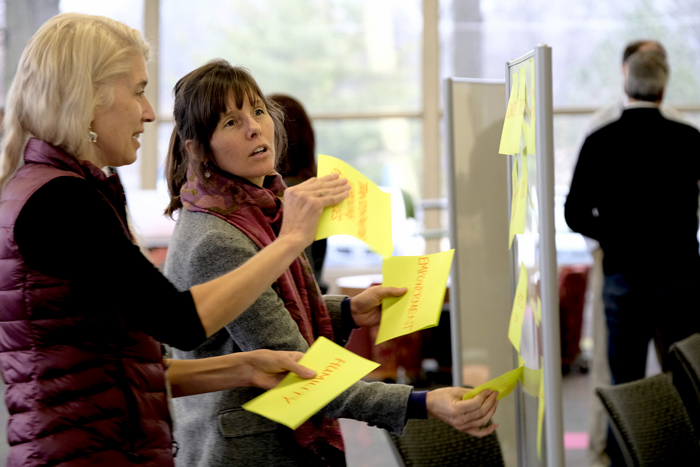
Empowering others, especially marginalized or threatened members of society, was a recurring theme in the students’ research and discussion.
Their specific aim is the EdD in Heritage Leadership for Sustainability, Social Justice and Participatory Culture. It’s a three-year, truly collaborative journey that – thanks to innovative design and advanced teaching technology – operates almost entirely online.
The exception comes just once a year when students from as far away as Alaska and Arizona and as close as Joplin, Missouri, have the chance to converge on UMSL’s South Campus and meet in person.
This year, the students met in the ED Collabitat during the second week of January – and they weren’t alone.
UMSL faculty and staff, plus a plethora of invited guests including Tom Fish, national coordinator for the Cooperative Ecosystem Study Unit Program at the National Park Service, Rachel Galan, educator and interpreter at Caddo Mounds State Historic Site in Texas, and Louise Bradshaw, director of education at the Saint Louis Zoo – to name only a few – joined the cohort for panel discussions, group learning activities and collaborative research efforts.
Such a large gathering of so many well-credentialed people was, as one student put it, “an incredibly powerful and energizing experience.”
But for those who are unfamiliar, perhaps it also raises a question: What exactly – or who – is a “heritage leader”?
One attendee, a National Park Service employee, had a fun, lighthearted answer to that exact question.
“We’re a room full of people who used to be camp counselors,” she said with a laugh.
She went on in earnest to describe people who love science, who care about climate change and natural habitats, who are invested not only in the preservation of history but in how it is shared and interpreted.
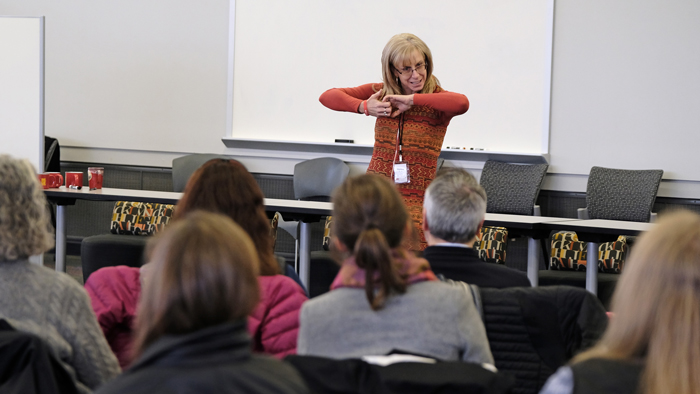
Theresa Coble, UMSL’s E. Desmond Lee Endowed Professor of Experiential and Family Education, described the “zone of tension,” where heritage leaders thrive.
She illustrated for the audience a mental image of people who are keepers of other people’s stories, people who see the world as one giant classroom.
If that still seems too mysterious, think of traditional educators who want to keep a thriving multicultural atmosphere alive in the four walls of their classroom – several of these individuals, including a 27-year veteran teacher of the Ferguson-Florissant School District in Missouri, are also part of the UMSL cohort.
But think too of the people whose job it is – in museums and zoos, at national monuments, in health-care settings – to share cultural stories, facts and data with a variety of different audiences.
In short, heritage leaders are a vast and varied bunch. Not many programs have traditionally given them a formal place to study together and further their career paths in a collaborative way – until now.
The students who have decided to take the plunge into getting this particular doctorate have reasons as varied as their backgrounds.
Tonia Herndon, who now lives in France but spent nearly 18 years working for the San Diego Zoo, said she joined the program because she hopes it will help guide her pursuit to further the field of interpretation.
Interpreters, she said, are the deliverers of educational information in places like zoos and museums. It’s their job to find meaningful ways to answer a question that’s on many visitors’ minds whether they realize it consciously or not: Why should I care about this?
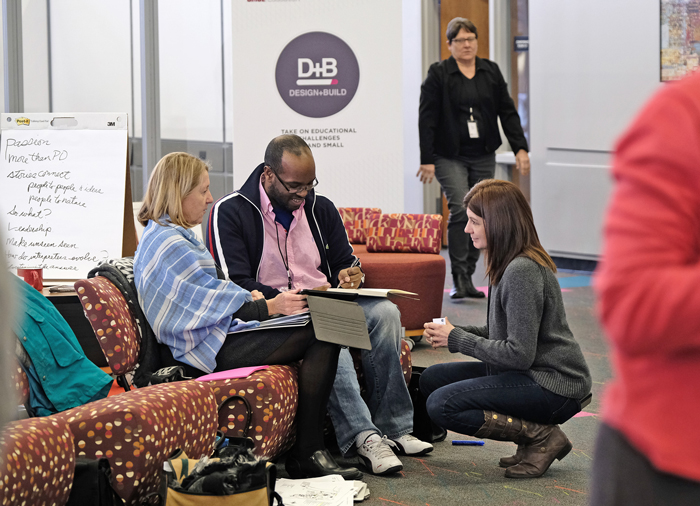
Mary Gillis (at right) who has taught English, journalism and media studies for 18 years in rural Missouri, is just one of the students in the cohort. She spoke of how her classroom experience post-9/11 helped awaken in her a desire to explore heritage leadership.
The “this” may refer to an endangered species, climate change or the lived experiences of a particular culture. Answering the “why” is at the top of Herndon’s priority list.
Lindsey Clemens, another student who works for the Special School District in St. Louis, said she’s interested in learning more about the ways in which she can lead efforts to empower minority groups.
That concept of empowerment – of using leadership as a mechanism for encouraging others to engage and grow and thrive – was a theme often returned to by many members of the cohort as they introduced themselves and shared their research interests over the course of the week.
That’s just as it should be, according to Theresa Coble, the E. Desmond Lee Endowed Professor of Experiential and Family Education at UMSL, who has been instrumental in the program’s development.
“If you’re going to be a leader, you have to look at vision and reality and the tension between the two,” Coble told the students last month. “Heritage leaders live in that zone of tension. And it’s our job to continually push on its boundaries. It’s our job to ask, ‘How are we going to work across difference? How are we going to build bridges between agencies and sectors and individuals?’”
Another way to describe heritage leaders? They’re the difference makers.
The EdD in Heritage Leadership for Sustainability, Social Justice and Participatory Culture is one of six doctoral-level learning communities at UMSL. The others include focuses on Creativity and Generative Design, Curriculum and Instruction, Global Education and Leadership, Leadership in Educational Practice and STEM Education Scholars. For further information, contact the College of Education.



